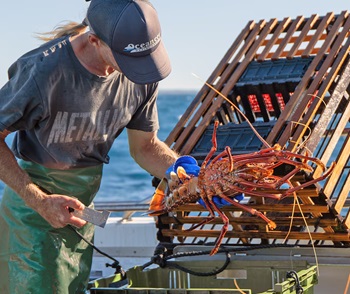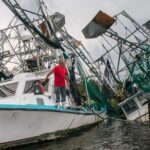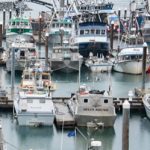 A divided federal appeals court on Wednesday stripped a regional fishery management council of its ability to block the U.S. Secretary of Commerce from taking actions to manage fisheries that the panel does not support, after finding the council’s members were unconstitutionally appointed. The Philadelphia-based 3rd U.S. Circuit Court of Appeals on 2-1 vote sided with two commercial fishermen who had sued after Mid-Atlantic Fishery Management Council amended a fishery-management plan to lower how much scup, summer flounder and black sea bass could be caught in their region. The fishermen, Raymond Lofstad and Gus Lovgren, challenged the constitutionality of the structure of the body, one of eight regional councils nationally tasked with developing fishery management plans, in their lawsuit. They are being represented by the libertarian Pacific Legal Foundation in their lawsuit. >>CLICK TO READ<< 11:05
A divided federal appeals court on Wednesday stripped a regional fishery management council of its ability to block the U.S. Secretary of Commerce from taking actions to manage fisheries that the panel does not support, after finding the council’s members were unconstitutionally appointed. The Philadelphia-based 3rd U.S. Circuit Court of Appeals on 2-1 vote sided with two commercial fishermen who had sued after Mid-Atlantic Fishery Management Council amended a fishery-management plan to lower how much scup, summer flounder and black sea bass could be caught in their region. The fishermen, Raymond Lofstad and Gus Lovgren, challenged the constitutionality of the structure of the body, one of eight regional councils nationally tasked with developing fishery management plans, in their lawsuit. They are being represented by the libertarian Pacific Legal Foundation in their lawsuit. >>CLICK TO READ<< 11:05
Category Archives: Western Pacific
Athearn Marine Agency Boat of the Week: 62′ Steel Longliner with Permit, 400HP Cummins
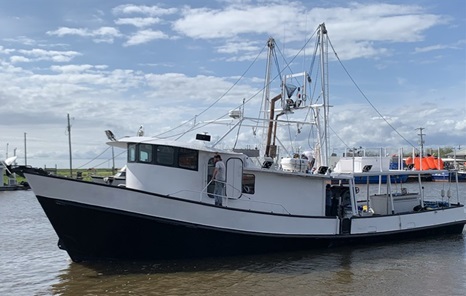 To review specifications, information, and 47 photos’, >click here<. To see all the boats in this series >click here< 06:00
To review specifications, information, and 47 photos’, >click here<. To see all the boats in this series >click here< 06:00

Trump Defeats Harris to Win a Second White House Term
Former President Donald Trump was elected the 47th president of the United States on Wednesday, mounting one of the greatest political comebacks of all time – a convicted felon who was twice impeached and left the presidency in disgrace just four years ago, only to win it back decisively in one of the most fraught elections in modern history. In defeating Vice President Kamala Harris, Trump stitched together an improbable coalition of supporters, including people of color and young voters, while promising to unfurl an America-first vision. With his victory all but assured early Wednesday morning, Trump told cheering supporters at a convention center in West Palm Beach, Florida, that “this was a movement like nobody’s ever seen before.” more, >>CLICK TO READ<< 07:41
“A Total Shock” – Japanese Sardines Detected in U.S. Waters
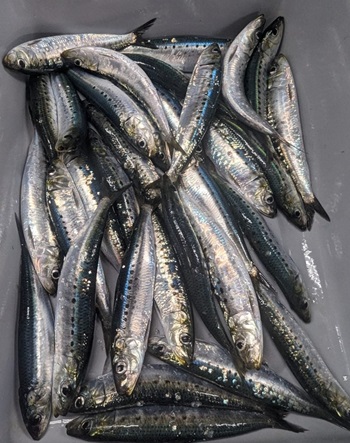 Genomic sequencing of Pacific sardines in 2022 and 2023 uncovered the presence of not just one, but two distinct sardine species in the California Current. When research scientist Gary Longo first reviewed the results of his genomic analysis of sardines, he thought he must have mixed up his samples. Besides the Pacific sardines common on the West Coast, many of the fish appeared to be another species. “It was a total shock,” he said. Then he compared their genetic code to other known species. “That was the ‘aha moment’ when we realized we were looking at a second species of sardine.” The analysis shows that of the 345 sardine samples collected during NOAA Fisheries’ 2021 and 2022 Coastal Pelagic Species Surveys, all of the fish in 2021 were Pacific sardines, but those collected in 2022 were a mix of Pacific sardines and Japanese sardines. more, >>CLICK TO READ<< 10:50
Genomic sequencing of Pacific sardines in 2022 and 2023 uncovered the presence of not just one, but two distinct sardine species in the California Current. When research scientist Gary Longo first reviewed the results of his genomic analysis of sardines, he thought he must have mixed up his samples. Besides the Pacific sardines common on the West Coast, many of the fish appeared to be another species. “It was a total shock,” he said. Then he compared their genetic code to other known species. “That was the ‘aha moment’ when we realized we were looking at a second species of sardine.” The analysis shows that of the 345 sardine samples collected during NOAA Fisheries’ 2021 and 2022 Coastal Pelagic Species Surveys, all of the fish in 2021 were Pacific sardines, but those collected in 2022 were a mix of Pacific sardines and Japanese sardines. more, >>CLICK TO READ<< 10:50
Australian rock lobster will soon be exported to China again — here’s what it means for the industry and consumers
China’s ban on Australian rock lobsters is expected to be lifted by the end of the year, Prime Minister Anthony Albanese has announced. Rock lobster fishers say China is “by far” their biggest market and the impact on coastal WA communities will be significant. However, it could mean Australians will end up paying more for the prized delicacy once exports resume. Australian rock lobster fishers soon will be able to export their prized catches to China again, after four years out in the cold. The welcome development was announced yesterday following a meeting between Prime Minister Anthony Albanese and Chinese Premier Li Qiang on the sidelines of the ASEAN summit in Vietnam. Exports are expected to resume by the end of the year, in time for Chinese New Year in 2025. Here’s what it means for Australia. Photos, more, >>CLICK TO READ<< 19:15
Maine’s massive “floating wind” folly — my report
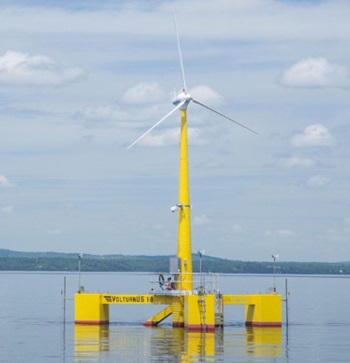 Below is my Executive Summary, followed by the latest bad news on this ongoing silly saga. This report examines several fundamental aspects of the State of Maine’s offshore wind development plan. It is divided into two parts. Part 1 examines certain economic issues, such as feasibility, cost, and progress to date. Part 2 explores the proposed development as it relates to the entire Gulf of Maine, namely because the project has not advanced to the point where the State of Maine’s responsibilities have been defined. The offshore wind plan calls for development of 3,000 MW of generating capacity, an amount that is roughly double Maine’s average electricity usage. The viability of Maine’s offshore wind plan depends entirely on the massive transformation of the state’s grid from fossil fuel use to electrification. It is clear that the citizens of Maine have not been informed of this vast transformation requirement. They have certainly not approved it. more, >>CLICK TO READ<< 09:34
Below is my Executive Summary, followed by the latest bad news on this ongoing silly saga. This report examines several fundamental aspects of the State of Maine’s offshore wind development plan. It is divided into two parts. Part 1 examines certain economic issues, such as feasibility, cost, and progress to date. Part 2 explores the proposed development as it relates to the entire Gulf of Maine, namely because the project has not advanced to the point where the State of Maine’s responsibilities have been defined. The offshore wind plan calls for development of 3,000 MW of generating capacity, an amount that is roughly double Maine’s average electricity usage. The viability of Maine’s offshore wind plan depends entirely on the massive transformation of the state’s grid from fossil fuel use to electrification. It is clear that the citizens of Maine have not been informed of this vast transformation requirement. They have certainly not approved it. more, >>CLICK TO READ<< 09:34
US fishery management council’s structure is unconstitutional, court rules
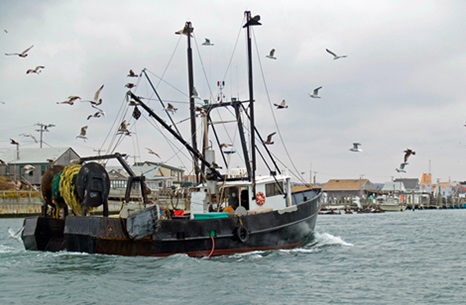
OPINION: Reel them in – Regional fisheries councils violate constitution and hurt accountability
That is the position in which many fishermen find themselves. They share a desire for sustainable fisheries and support some of the federal efforts at regulation. But they oppose certain federal water catch limits and allocations between commercial and recreation sectors that are set by regional fishery management councils made up of members who aren’t accountable through elections or to elected officials. Pacific Legal Foundation is representing these individuals and small businesses in courts around the country, making what we think is a simple argument based on the text and purpose of the Constitution. Specifically, that it requires that executive branch officials with significant authority be appointed by the president or a member of his cabinet. more, >>CLICK TO READ<< 06:40
Flawed fisheries science ’cause for concern’
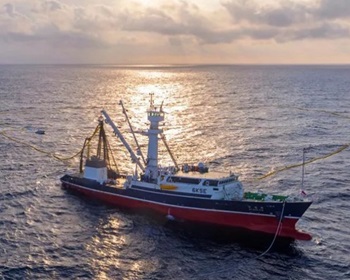 An article just published in the respected science journal Marine Policy highlights the need for objective and reliable fisheries science to ensure conservation and sustainable development. It says the publication of flawed papers, some in high-profile journals, is cause for concern, and that misleading science can misinform policy and the public. The authors, who include well-known US fisheries scientist Professor Ray Hilborn, call for the rigour of peer reviews and editorial management to be strengthened, and say journal publishers must ensure the reliability of papers they publish. “The prevalence of papers conveying unjustified messages and with the potential to influence public perceptions and policies is concerning,” they say, providing examples where flawed methodology led to the exaggeration of negative impacts on ecosystems by the fishing industry – which was often then sensationalised by campaigners. In all of the examples quoted, a rebuttal was subsequently published. more, >>CLICK TO READ<< 12:46
An article just published in the respected science journal Marine Policy highlights the need for objective and reliable fisheries science to ensure conservation and sustainable development. It says the publication of flawed papers, some in high-profile journals, is cause for concern, and that misleading science can misinform policy and the public. The authors, who include well-known US fisheries scientist Professor Ray Hilborn, call for the rigour of peer reviews and editorial management to be strengthened, and say journal publishers must ensure the reliability of papers they publish. “The prevalence of papers conveying unjustified messages and with the potential to influence public perceptions and policies is concerning,” they say, providing examples where flawed methodology led to the exaggeration of negative impacts on ecosystems by the fishing industry – which was often then sensationalised by campaigners. In all of the examples quoted, a rebuttal was subsequently published. more, >>CLICK TO READ<< 12:46
Athearn Marine Agency Boat of the Week: 60’x18’x9′ Astor Longliner, Cummins KT 1150
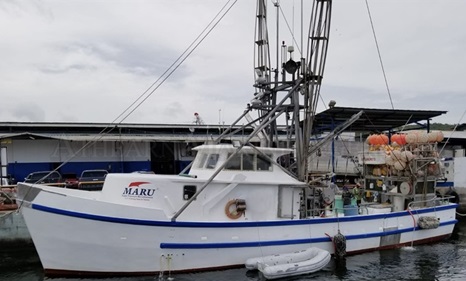 To review specifications, information, and 15 photos’, >click here< To see all the boats in this series, >click here< 06:46
To review specifications, information, and 15 photos’, >click here< To see all the boats in this series, >click here< 06:46
Personal Locator Beacon tips the scale for fishermen adrift in Western Pacific
![]() A group of fishermen adrift in the remote Western Pacific made their recent rescue significantly easier because they carried a personal locator beacon, according to the U.S. Coast Guard search coordinator. The six fishermen were about 30 miles north of Satawal Atoll in the Caroline Islands, a widely scattered archipelago, when their engine failed around 9 a.m. Aug. 17, according to a news release from Coast Guard Sector Guam. The fishermen activated a personal locator beacon, or PLB, which issued a distress signal and transmitted their location to Joint Rescue Sub-Center Guam, more than 430 miles away, the Aug. 19 release said. The center relayed the information to the USCGC Oliver Henry on patrol about 270 miles northeast of the fishermen, and a Panamanian-flagged cargo vessel about 160 miles north of the disabled vessel. more, >>CLICK TO READ<< 11:50
A group of fishermen adrift in the remote Western Pacific made their recent rescue significantly easier because they carried a personal locator beacon, according to the U.S. Coast Guard search coordinator. The six fishermen were about 30 miles north of Satawal Atoll in the Caroline Islands, a widely scattered archipelago, when their engine failed around 9 a.m. Aug. 17, according to a news release from Coast Guard Sector Guam. The fishermen activated a personal locator beacon, or PLB, which issued a distress signal and transmitted their location to Joint Rescue Sub-Center Guam, more than 430 miles away, the Aug. 19 release said. The center relayed the information to the USCGC Oliver Henry on patrol about 270 miles northeast of the fishermen, and a Panamanian-flagged cargo vessel about 160 miles north of the disabled vessel. more, >>CLICK TO READ<< 11:50
Coast Guard medevacs man from fishing vessel 480 miles offshore Honolulu
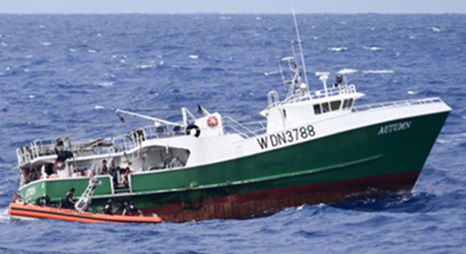 The Coast Guard completed the medevac of an ailing man from a commercial fishing vessel 480 miles offshore Honolulu Friday. Joint Rescue Coordination Center Honolulu watchstanders received a call at 1:45 p.m. Monday from Pacific Fishing & Supply personnel reporting that a 53-year-old crew member aboard the 68-foot fishing vessel Autumn was exhibiting stroke-like symptoms approximately 750 miles offshore. more, >>CLICK TO READ<< 18:09
The Coast Guard completed the medevac of an ailing man from a commercial fishing vessel 480 miles offshore Honolulu Friday. Joint Rescue Coordination Center Honolulu watchstanders received a call at 1:45 p.m. Monday from Pacific Fishing & Supply personnel reporting that a 53-year-old crew member aboard the 68-foot fishing vessel Autumn was exhibiting stroke-like symptoms approximately 750 miles offshore. more, >>CLICK TO READ<< 18:09
Unalaska, Aleutians East Borough oppose Rep. Peltola’s proposed trawling limitations
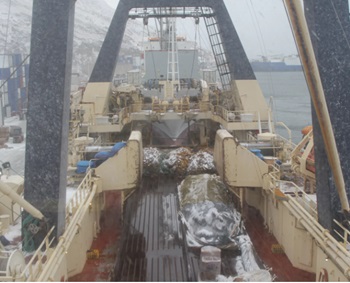 Communities in the Aleutians are pushing back against proposed legislation that would bring stricter regulations to the Bering Sea trawl fishery. The City of Unalaska and the Aleutians East Borough are among 53 organizations that signed onto a letter sent to U.S. Rep. Mary Peltola, urging her to withdraw H.R. 8507, a bill she sponsored in May. The proposed legislation aims to add new regulations to where trawling can take place across the United States, not only in Alaska. Trade organizations and some coastal communities whose economies rely on trawl fisheries have pushed back against the bill, asking the congresswoman to repeal it. “If enacted, H.R. 8507 would directly harm fishermen and coastal communities in Alaska and throughout our nation, along with countless other people who rely on a healthy domestic seafood sector for food, jobs, and their way of life,” the letter said. more, >>CLICK TO READ<< 13:28
Communities in the Aleutians are pushing back against proposed legislation that would bring stricter regulations to the Bering Sea trawl fishery. The City of Unalaska and the Aleutians East Borough are among 53 organizations that signed onto a letter sent to U.S. Rep. Mary Peltola, urging her to withdraw H.R. 8507, a bill she sponsored in May. The proposed legislation aims to add new regulations to where trawling can take place across the United States, not only in Alaska. Trade organizations and some coastal communities whose economies rely on trawl fisheries have pushed back against the bill, asking the congresswoman to repeal it. “If enacted, H.R. 8507 would directly harm fishermen and coastal communities in Alaska and throughout our nation, along with countless other people who rely on a healthy domestic seafood sector for food, jobs, and their way of life,” the letter said. more, >>CLICK TO READ<< 13:28
U.S. fisheries could be devastated by Supreme Court’s ending the Chevron doctrine
 Loper Bright Enterprises v. Raimondo the Supreme Court’s late June decision on regulatory agency authority, heralds the much-anticipated end of the 40-year-old Chevron doctrine, which required courts to defer to federal agencies when interpreting laws. No doubt, much will be written in the coming weeks about the impacts of Chevron’s demise on the administrative state. But, at its core, Loper Bright is a case about fisheries. What then are the implications of this decision for both the fishermen and the healthy fisheries of the United States? This case comes at a critical time for U.S. fisheries. Historically, the U.S. has seen many notable economically and culturally ruinous fisheries collapse — from the Atlantic cod collapse of the 1990s to the current collapse of Pacific salmon. The Magnuson-Stevens Act created the framework for the protection of U.S. fisheries and has been moderately successful since its enactment. more, >>CLICK TO READ<< 09:21
Loper Bright Enterprises v. Raimondo the Supreme Court’s late June decision on regulatory agency authority, heralds the much-anticipated end of the 40-year-old Chevron doctrine, which required courts to defer to federal agencies when interpreting laws. No doubt, much will be written in the coming weeks about the impacts of Chevron’s demise on the administrative state. But, at its core, Loper Bright is a case about fisheries. What then are the implications of this decision for both the fishermen and the healthy fisheries of the United States? This case comes at a critical time for U.S. fisheries. Historically, the U.S. has seen many notable economically and culturally ruinous fisheries collapse — from the Atlantic cod collapse of the 1990s to the current collapse of Pacific salmon. The Magnuson-Stevens Act created the framework for the protection of U.S. fisheries and has been moderately successful since its enactment. more, >>CLICK TO READ<< 09:21
Federal fishing monitoring program needs overhaul, GAO says
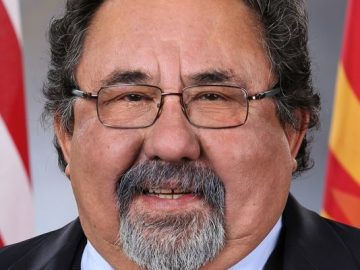 Only days after the Supreme Court dealt a blow to the federal government’s program placing human observers on commercial fishing boats, a federal watchdog said NOAA Fisheries should do a better job monitoring the industry. A report released Wednesday by the Government Accountability Office said NOAA Fisheries — also known as the National Marine Fisheries Service — has failed to execute its program as Congress intended under law. “NMFS’ efforts to track its performance in reducing and monitoring bycatch do not align with key elements of evidence-based policymaking related to performance management,” GAO said in the report, which was requested by Rep. Raúl Grijalva (D-Ariz.), the ranking member of the House Natural Resources Committee. more, >>CLICK TO READ<< 19:19
Only days after the Supreme Court dealt a blow to the federal government’s program placing human observers on commercial fishing boats, a federal watchdog said NOAA Fisheries should do a better job monitoring the industry. A report released Wednesday by the Government Accountability Office said NOAA Fisheries — also known as the National Marine Fisheries Service — has failed to execute its program as Congress intended under law. “NMFS’ efforts to track its performance in reducing and monitoring bycatch do not align with key elements of evidence-based policymaking related to performance management,” GAO said in the report, which was requested by Rep. Raúl Grijalva (D-Ariz.), the ranking member of the House Natural Resources Committee. more, >>CLICK TO READ<< 19:19
How the Supreme Court rescued my NJ fishing firm that bureaucrats almost sank
 The Supreme Court just sided with my New Jersey-based, family-owned fishing business, and may have even saved it. That’s the reality of the court’s June 28 decision in a case called Loper Bright Enterprises v. Raimondo, which overturned the “Chevron doctrine” that gave unchecked power to federal bureaucrats. Yet the media reaction hasn’t focused on what the ruling means for regular people and job creators like me. The pundits say that Washington, DC, will descend into chaos because the justices stopped unelected and unaccountable bureaucrats from deciding for themselves what’s “reasonable” under federal law. But as I can attest, that power quickly leads to abuse. The Supreme Court has protected the American people from regulators run amok, and from a Congress that won’t do its job. I was one of the small business owners who sued the federal government in this case. By Wayne Reichle, more, >>CLICK TO READ<< 21:20
The Supreme Court just sided with my New Jersey-based, family-owned fishing business, and may have even saved it. That’s the reality of the court’s June 28 decision in a case called Loper Bright Enterprises v. Raimondo, which overturned the “Chevron doctrine” that gave unchecked power to federal bureaucrats. Yet the media reaction hasn’t focused on what the ruling means for regular people and job creators like me. The pundits say that Washington, DC, will descend into chaos because the justices stopped unelected and unaccountable bureaucrats from deciding for themselves what’s “reasonable” under federal law. But as I can attest, that power quickly leads to abuse. The Supreme Court has protected the American people from regulators run amok, and from a Congress that won’t do its job. I was one of the small business owners who sued the federal government in this case. By Wayne Reichle, more, >>CLICK TO READ<< 21:20

An Optimist’s view: Death of the Chevron Deference
My name is David Goethel. I am a 55 year plus commercial fisherman, research biologist and former fishery manager. As author of Endangered Species/Chronicles of A new England Fisherman I discuss these topics and a lawsuit I filed in 2015 with the legal group Cause of Action over the legal concept known as Chevron Deference. Most people believe Congress writes laws, the Executive Branch carries out those laws and the Judicial Branch interprets and clarifies whether aspects of those laws are Constitutional and correctly applied. It turns out under a doctrine called “Chevron Deference” the regulatory bureaucracy can deem a law unclear or ambiguous and create any regulation the agency decides it needs to carry out its bureaucratic function. Until this past Friday, the courts gave deference to the regulators as the “recognized experts” even though no proof is required and no test for ambiguity is applied. The Supreme Court overturned Chevron Friday saying they had “placed a tombstone on its grave”. Fishermen, including me, had sued saying that unelected regulators should not have this vast power over our lives. more, >>CLICK TO READ<< 20:18
Fishermen Who Were Forced to Pay $700 Per Day to Government-Mandated Observers on Their Boats Get Big News from SCOTUS
 Members of the 18th-century British Parliament, unelected by American colonists, tried to take money from those colonists without their consent. Hence, the American Revolution ensued. On Friday, the U.S. Supreme Court overturned a 40-year-old ruling that had allowed unelected federal regulators, acting the part of the British Parliament, to commit such travesties of justice as requiring fishermen to pay for government-mandated regulators on their boats — a requirement that, according to CBS, could cost the fishermen more than $700 per day. The true magnitude of Friday’s ruling, however, involved far more than fishing boats. In fact, it struck at the heart of American progressivism by eviscerating the insidious claim that federal “experts” know best. In so doing, it took one small-but-crucial step towards dismantling the permanent federal state that actually governs in Washington, D.C. more, >>CLICK TO READ<< 11:18
Members of the 18th-century British Parliament, unelected by American colonists, tried to take money from those colonists without their consent. Hence, the American Revolution ensued. On Friday, the U.S. Supreme Court overturned a 40-year-old ruling that had allowed unelected federal regulators, acting the part of the British Parliament, to commit such travesties of justice as requiring fishermen to pay for government-mandated regulators on their boats — a requirement that, according to CBS, could cost the fishermen more than $700 per day. The true magnitude of Friday’s ruling, however, involved far more than fishing boats. In fact, it struck at the heart of American progressivism by eviscerating the insidious claim that federal “experts” know best. In so doing, it took one small-but-crucial step towards dismantling the permanent federal state that actually governs in Washington, D.C. more, >>CLICK TO READ<< 11:18
Neil Gorsuch Cheers Supreme Court Placing ‘Tombstone’ on 40-Year Precedent
 In Friday’s 6-3 ruling in Loper Bright Enterprises v. Raimondo, the justices wiped out 40 years of administrative law precedent in a move that will restrain federal agency powers. The court’s decision overturned the Chevron deference established in the 1984 case Chevron v. Natural Resources Defense Council. The majority, led by Chief Justice John Roberts and joined by the court’s other conservative justices, held that “courts may not defer to an agency interpretation of the law simply because a statute is ambiguous,” overturning Chevon deference. The court’s three liberal justices dissented. The majority, led by Chief Justice John Roberts and joined by the court’s other conservative justices, held that “courts may not defer to an agency interpretation of the law simply because a statute is ambiguous,” overturning Chevon deference. The court’s three liberal justices dissented. In Gorsuch’s concurring opinion, he wrote: “Today, the Court places a tombstone on Chevron no one can miss. In doing so, the Court returns judges to interpretive rules that have guided federal courts since the Nation’s founding.” more, >>CLICK TO READ<< 15:49
In Friday’s 6-3 ruling in Loper Bright Enterprises v. Raimondo, the justices wiped out 40 years of administrative law precedent in a move that will restrain federal agency powers. The court’s decision overturned the Chevron deference established in the 1984 case Chevron v. Natural Resources Defense Council. The majority, led by Chief Justice John Roberts and joined by the court’s other conservative justices, held that “courts may not defer to an agency interpretation of the law simply because a statute is ambiguous,” overturning Chevon deference. The court’s three liberal justices dissented. The majority, led by Chief Justice John Roberts and joined by the court’s other conservative justices, held that “courts may not defer to an agency interpretation of the law simply because a statute is ambiguous,” overturning Chevon deference. The court’s three liberal justices dissented. In Gorsuch’s concurring opinion, he wrote: “Today, the Court places a tombstone on Chevron no one can miss. In doing so, the Court returns judges to interpretive rules that have guided federal courts since the Nation’s founding.” more, >>CLICK TO READ<< 15:49
Littleproud predicts rough seas ahead for Illawarra wind zone under Coalition government
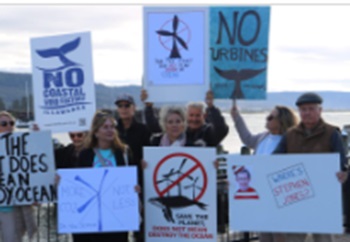 A future Coalition government would not allow a wind energy zone to be developed off the Illawarra coast, Nationals Leader David Littleproud said in Wollongong on Monday (17 June). To the cheers of a group of anti-wind zone protesters at Belmore Basin, Mr Littleproud said the Coalition would stop wind farms from going ahead. “There will be no wind zone, there is a better way to do this. Make no mistake, we’re going to live up to our international commitments, but we’re not going to tear away your economy, your environment and tear up the social cohesion of this great community,” he said. Mr Littleproud and NSW Nationals Senator Ross Cadell visited the region following the weekend declaration by Federal Climate Change and Energy Minister Chris Bowen of a 1022 square km wind zone area, 20 km off the coast. more, >>CLICK TO READ<< 11:53
A future Coalition government would not allow a wind energy zone to be developed off the Illawarra coast, Nationals Leader David Littleproud said in Wollongong on Monday (17 June). To the cheers of a group of anti-wind zone protesters at Belmore Basin, Mr Littleproud said the Coalition would stop wind farms from going ahead. “There will be no wind zone, there is a better way to do this. Make no mistake, we’re going to live up to our international commitments, but we’re not going to tear away your economy, your environment and tear up the social cohesion of this great community,” he said. Mr Littleproud and NSW Nationals Senator Ross Cadell visited the region following the weekend declaration by Federal Climate Change and Energy Minister Chris Bowen of a 1022 square km wind zone area, 20 km off the coast. more, >>CLICK TO READ<< 11:53
Technology Helping Prevent Whale Strikes
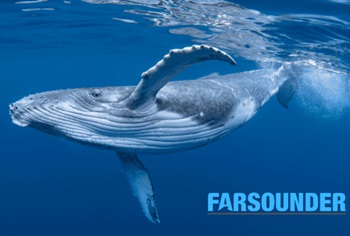 As many as 80 whales are estimated to die each year off the West Coast of the US as a result of ship strikes, and about a third of all Right Whale deaths in the Atlantic are attributed to ship strikes. Sperm Whales in the Mediterranean are also listed as an endangered species, and ship strike is their leading cause of death. Whale avoidance is clearly top of mind for mariners. It is time to explore how currently available technology can help in this endeavor. As the world looks to new technologies to assist in whale avoidance, it is important to ensure there is no impact on the whales and the environment. Likewise, as governmental regulations evolve, operating vessels near whales requires a strong understanding of the rules implemented to protect them. There should be strict adherence to safe practices that coincide with the use of the right technologies. more, >>CLICK TO READ<< 10:42
As many as 80 whales are estimated to die each year off the West Coast of the US as a result of ship strikes, and about a third of all Right Whale deaths in the Atlantic are attributed to ship strikes. Sperm Whales in the Mediterranean are also listed as an endangered species, and ship strike is their leading cause of death. Whale avoidance is clearly top of mind for mariners. It is time to explore how currently available technology can help in this endeavor. As the world looks to new technologies to assist in whale avoidance, it is important to ensure there is no impact on the whales and the environment. Likewise, as governmental regulations evolve, operating vessels near whales requires a strong understanding of the rules implemented to protect them. There should be strict adherence to safe practices that coincide with the use of the right technologies. more, >>CLICK TO READ<< 10:42
Rare ‘football fish’ washes up near Cannon Beach
 A deep-sea angler fish, called a Pacific football fish (Himantoliphus sagamius) has been found by local beachcombers just south of Cannon Beach. Living in complete darkness, at 2,000 to 3,300 feet, these fish are rarely seen. In fact, only 31 specimens have been recorded around the world. While a handful of football fish have been recorded in New Zealand, Japan, Russia, Hawaii, Ecuador, Chile and California, this is the first one reported on the Oregon Coast to the knowledge of personnel at Seaside Aquarium, who announced the find. Photos, more, >>CLICK TO READ<< 10:38
A deep-sea angler fish, called a Pacific football fish (Himantoliphus sagamius) has been found by local beachcombers just south of Cannon Beach. Living in complete darkness, at 2,000 to 3,300 feet, these fish are rarely seen. In fact, only 31 specimens have been recorded around the world. While a handful of football fish have been recorded in New Zealand, Japan, Russia, Hawaii, Ecuador, Chile and California, this is the first one reported on the Oregon Coast to the knowledge of personnel at Seaside Aquarium, who announced the find. Photos, more, >>CLICK TO READ<< 10:38
Athearn Marine Agency Boat of the Week: 64′ Dixon Longliner, Tripack permits, 425HP, Mitsubishi Turbo Diesel
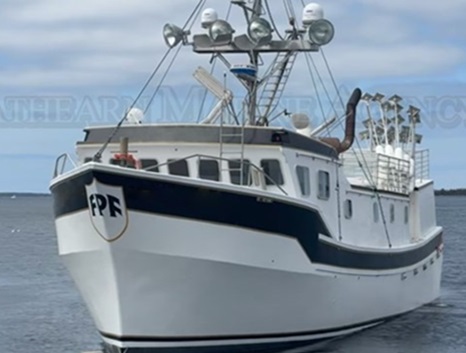 To review specifications, information, and 23 photos’, >click here<, To see all the boats in this series, >click here< 06:56
To review specifications, information, and 23 photos’, >click here<, To see all the boats in this series, >click here< 06:56
Final HFD investigation report being completed following Pier 36 boat fire
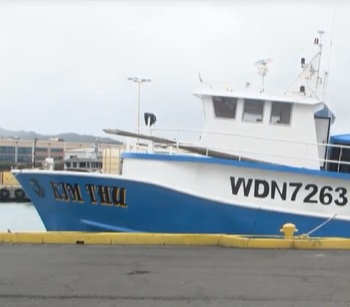 Pier 36 appeared to be back to normal Saturday in Honolulu, less than a day after an explosion on a boat that injured five people. It resulted in two critical patients and three serious. First responders were called out to the scene around 3:30 p.m. Friday. Captain Matt Milyak with Hawaii Whale tale tours works on Oahu and offered insight. Regarding Friday’s incident and the possible cause, he, an anonymous fishing industry worker added, “I don’t know, all I see (hear) is a boom noise and a big ball of flames coming through the door and that’s it – back of the boat”. A report released by HFD Saturday evening stated heavy smoke from the engine room was encountered and led the firefighters to the smoldering seat of the fire, portable fire extinguishers were used to extinguish the fire and surrounding hotspots. Video, more, >>CLICK TO READ<< 20:25
Pier 36 appeared to be back to normal Saturday in Honolulu, less than a day after an explosion on a boat that injured five people. It resulted in two critical patients and three serious. First responders were called out to the scene around 3:30 p.m. Friday. Captain Matt Milyak with Hawaii Whale tale tours works on Oahu and offered insight. Regarding Friday’s incident and the possible cause, he, an anonymous fishing industry worker added, “I don’t know, all I see (hear) is a boom noise and a big ball of flames coming through the door and that’s it – back of the boat”. A report released by HFD Saturday evening stated heavy smoke from the engine room was encountered and led the firefighters to the smoldering seat of the fire, portable fire extinguishers were used to extinguish the fire and surrounding hotspots. Video, more, >>CLICK TO READ<< 20:25
Five injured in reported boat ‘explosion’ at Honolulu’s Pier 36
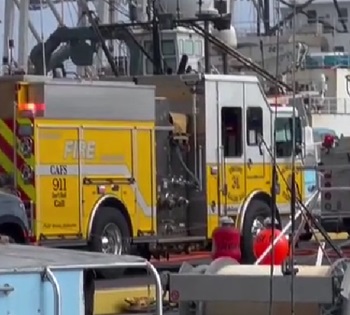 Rescue crews are responding to a reported fire on a boat docked at Pier 36 in Honolulu where five people were injured. First responders were called out to the scene in the 1200 block of N. Nimitz Highway around 3:30 p.m. “They were all adult males, two in critical condition and both of those men went to The Queen’s Medical Center. An additional male was in serious condition, and he also went to the Queen’s Medical Center. And then two people were also adult males in serious condition, and they went to the Straub Medical Center,” Ireland added. The state said the explosion happened while the men were working in the engine room of the “Kim Thu” — a foreign long-line fishing vessel. more, >>CLICK TO READ<< 11:49
Rescue crews are responding to a reported fire on a boat docked at Pier 36 in Honolulu where five people were injured. First responders were called out to the scene in the 1200 block of N. Nimitz Highway around 3:30 p.m. “They were all adult males, two in critical condition and both of those men went to The Queen’s Medical Center. An additional male was in serious condition, and he also went to the Queen’s Medical Center. And then two people were also adult males in serious condition, and they went to the Straub Medical Center,” Ireland added. The state said the explosion happened while the men were working in the engine room of the “Kim Thu” — a foreign long-line fishing vessel. more, >>CLICK TO READ<< 11:49
Dockside Safety Exam Program – Coast Guard helps commercial fishermen ensure a safe catch
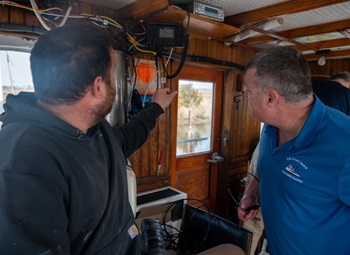 As the nation’s largest estuary, the Chesapeake Bay is a highly valued resource for more than 18 million people who live in its watershed. Producing about 500 million pounds of seafood each year, the Bay supports commercial and recreational fishing and creates one of the most economically significant regions of the Unites States. According to NOAA and the U.S. Bureau of Labor Statistics, commercial fishing is one of the country’s most dangerous occupations. “What we do for the local fishing community is support their workplace safety,” said Timothy Diehl, a Coast Guard vessel safety examiner from Sector Maryland-National Capital Region in Baltimore, Maryland. Most of Diehl’s workdays are spent traveling to area marinas where he meets with commercial fishing vessel operators and owners. Photos, more, >>CLICK TO READ<< 07:21
As the nation’s largest estuary, the Chesapeake Bay is a highly valued resource for more than 18 million people who live in its watershed. Producing about 500 million pounds of seafood each year, the Bay supports commercial and recreational fishing and creates one of the most economically significant regions of the Unites States. According to NOAA and the U.S. Bureau of Labor Statistics, commercial fishing is one of the country’s most dangerous occupations. “What we do for the local fishing community is support their workplace safety,” said Timothy Diehl, a Coast Guard vessel safety examiner from Sector Maryland-National Capital Region in Baltimore, Maryland. Most of Diehl’s workdays are spent traveling to area marinas where he meets with commercial fishing vessel operators and owners. Photos, more, >>CLICK TO READ<< 07:21
Graves, Wicker Urge NOAA to Catch Better Data for Fisheries Management
 U.S. Congressman Garret Graves and U.S. Senator Roger Wicker – along with U.S. Senate Commerce Committee Ranking Member Ted Cruz (Texas), U.S. House Natural Resources Committee Chair Bruce Westerman and 20 other bipartisan Members of Congress – urged the National Oceanic and Atmospheric Administration (NOAA) Assistant Administrator Janet Coit to modernize the data used by the National Marine Fisheries Service (NMFS) and bring better science to the table for fisheries management. “Historically, the federal government’s fisheries data management has been a failure. Their system overestimates what has been caught, which gives us less opportunity to fish. There are real solutions on the table to reverse this trend .“We know that there’s better and more precise fisheries management data being collected by the states than what the federal government can provide, and we want NMFS to use the best data and science,” said Congressman Graves. “Our children and grandchildren deserve sound science and sustainable fisheries management. more, >>CLICK TO READ<< 09:23
U.S. Congressman Garret Graves and U.S. Senator Roger Wicker – along with U.S. Senate Commerce Committee Ranking Member Ted Cruz (Texas), U.S. House Natural Resources Committee Chair Bruce Westerman and 20 other bipartisan Members of Congress – urged the National Oceanic and Atmospheric Administration (NOAA) Assistant Administrator Janet Coit to modernize the data used by the National Marine Fisheries Service (NMFS) and bring better science to the table for fisheries management. “Historically, the federal government’s fisheries data management has been a failure. Their system overestimates what has been caught, which gives us less opportunity to fish. There are real solutions on the table to reverse this trend .“We know that there’s better and more precise fisheries management data being collected by the states than what the federal government can provide, and we want NMFS to use the best data and science,” said Congressman Graves. “Our children and grandchildren deserve sound science and sustainable fisheries management. more, >>CLICK TO READ<< 09:23
The One Weird Trick Trump Could Use to Get Away with January 6th
Far from shore after a week at sea, a Florida fisherman named John Yates was buste d by wildlife officials for catching grouper that were too small. But before returning to the dock a day later, Yates chucked the contraband fish overboard rather than hand them over to authorities. So, the federal government charged Yates with destroying evidence under a law passed in response to the energy giant Enron and its shady financial practices. Called the Sarbanes-Oxley Act, the law was intended to crack down on financial fraud and evidence destruction. Yates argued that the law governed document shredding and fish aren’t documents. Eight years later, the Supreme Court sided with the fisherman in a precedent-setting 2015 decision that limited prosecutions. Today, that dump of grouper could wind up getting Donald Trump off the hook for January 6th. more, >>click to read<< 10:47
d by wildlife officials for catching grouper that were too small. But before returning to the dock a day later, Yates chucked the contraband fish overboard rather than hand them over to authorities. So, the federal government charged Yates with destroying evidence under a law passed in response to the energy giant Enron and its shady financial practices. Called the Sarbanes-Oxley Act, the law was intended to crack down on financial fraud and evidence destruction. Yates argued that the law governed document shredding and fish aren’t documents. Eight years later, the Supreme Court sided with the fisherman in a precedent-setting 2015 decision that limited prosecutions. Today, that dump of grouper could wind up getting Donald Trump off the hook for January 6th. more, >>click to read<< 10:47
‘Wicked Tuna’ star meets Kaua‘i fishermen, scientist eager to resume local ahi research
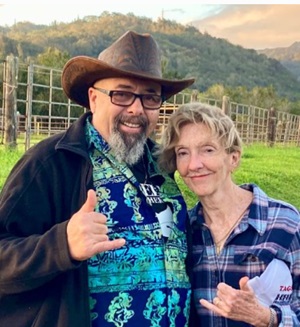 Reality television star Dave Marciano, captain of the fishing vessel Hard Merchandise on the long-running National Geographic series “Wicked Tuna”, has spent the last two weeks on a whirlwind tour of Kaua. The famous fisherman, who visited with his family, was on vacation. However, he was also excited to reignite a long-running initiative between local commercial fishermen and marine biologists – which has all but stopped in the wake of the COVID-19 pandemic and a lack of funding. The local fishermen are more than Marciano’s colleagues: They’re also some of his biggest fans. When not discussing their shared profession, some could not resist taking a selfie or getting an autograph from the avuncular East Coast captain. Photos, more, >>click to read<< 08:46
Reality television star Dave Marciano, captain of the fishing vessel Hard Merchandise on the long-running National Geographic series “Wicked Tuna”, has spent the last two weeks on a whirlwind tour of Kaua. The famous fisherman, who visited with his family, was on vacation. However, he was also excited to reignite a long-running initiative between local commercial fishermen and marine biologists – which has all but stopped in the wake of the COVID-19 pandemic and a lack of funding. The local fishermen are more than Marciano’s colleagues: They’re also some of his biggest fans. When not discussing their shared profession, some could not resist taking a selfie or getting an autograph from the avuncular East Coast captain. Photos, more, >>click to read<< 08:46
NTSB Issues Safety Alert on Personal Locator Devices for Mariners
 A new safety alert issued by the National Transportation Safety Board (NTSB) to provide each crewmember with a personal locator device. These devices improve a mariner’s chance of rescue during an emergency. During an emergency at sea, a mariner’s chance of survival decreases if search and rescue cannot quickly and accurately identify their location. Personal locator devices, such as personal locator beacons (PLB) or satellite emergency notification devices (SEND), can accurately pinpoint a person’s location. NTSB investigations found that currently available personal locator beacons provide a location accuracy of about 300 feet and a nearly instant search and rescue notification when activated. more, <<click to read<<17:24
A new safety alert issued by the National Transportation Safety Board (NTSB) to provide each crewmember with a personal locator device. These devices improve a mariner’s chance of rescue during an emergency. During an emergency at sea, a mariner’s chance of survival decreases if search and rescue cannot quickly and accurately identify their location. Personal locator devices, such as personal locator beacons (PLB) or satellite emergency notification devices (SEND), can accurately pinpoint a person’s location. NTSB investigations found that currently available personal locator beacons provide a location accuracy of about 300 feet and a nearly instant search and rescue notification when activated. more, <<click to read<<17:24
Hoyle’s Bill to Support Commercial Fishing in Port Infrastructure Act Passes
 This week 4th District Congresswoman Val Hoyle’s “Supporting Commercial Fishing in Port Infrastructure Projects Act” passed both the House and Senate as part of the Maritime Administration Reauthorization Act. A release from Hoyle said President Biden is expected to sign the bill into law. Hoyle said H.R.4618 will ensure ports can apply for infrastructure grants that support commercial fishing, bolster jobs and drive the economies of coastal communities. Hoyle said current law does not make it explicitly clear whether ports can apply for Port Infrastructure Development Program grants that support commercial fishing, often leaving it up to interpretation that can overlook commercial fishing communities who are the backbone of coastal economies. more, >>click to read<< 14:44
This week 4th District Congresswoman Val Hoyle’s “Supporting Commercial Fishing in Port Infrastructure Projects Act” passed both the House and Senate as part of the Maritime Administration Reauthorization Act. A release from Hoyle said President Biden is expected to sign the bill into law. Hoyle said H.R.4618 will ensure ports can apply for infrastructure grants that support commercial fishing, bolster jobs and drive the economies of coastal communities. Hoyle said current law does not make it explicitly clear whether ports can apply for Port Infrastructure Development Program grants that support commercial fishing, often leaving it up to interpretation that can overlook commercial fishing communities who are the backbone of coastal economies. more, >>click to read<< 14:44






